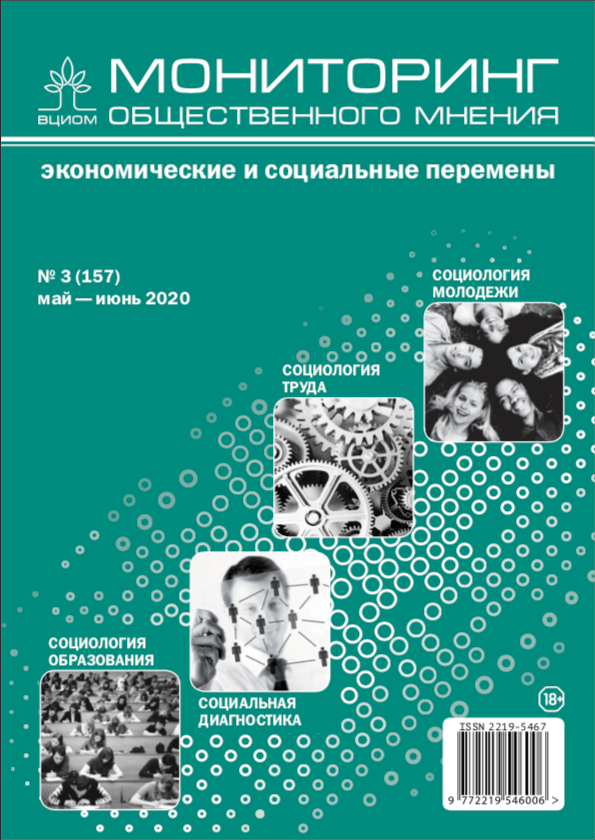Features of Youth’s Life Strategies in the Arctic
DOI:
https://doi.org/10.14515/monitoring.2020.3.1611Keywords:
youth, life strategies, Arctic, region, riskAbstract
The aim of this paper is to present the regional socialization context of the youth living in a geographical zone with special conditions determined by many objective and subjective factors. The theoretical and methodological framework of the study is based on the risk-based approach proposed by Yu. A. Zubok. The approach emphasizes social factors of the youth life strategies in the Arctic. The strategies are examined through environmental risk factors at macro and meso levels in the Arctic conditions as well as through the activity-related risk factors at the micro level (plans, aims, choices and other elements of life strategies). The authors present a generalized analysis of statistical and sociological data concerning the life strategies in all the regions of the Russian Arctic Zone. The empirical basis is the results of sociological surveys conducted by the authors in the Murmansk oblast from 2014 through 2018; questionnaire tool was used to survey different populations including youth.
As a result, the authors obtained systematized data on the youth attitudes towards living in the region, their migration settings and migration experiences, expectations and ambitions in different spheres, social characteristics and status markers. The study indentifies major inconsistencies between managerial decisions of the federal and regional bodies declared in the main documents and the actual situation pointed by statistical and sociological research data. On the one hand, strategic documents show refusal from the rotation-based model of the Arctic exploration in favor of the complex social and economic development, including activities aiming at retaining and attracting human resources, increasing the living standards and quality of life. On the other hand, there is a steady decline in the population size primarily at the expense of the youth outflow pointing to low satisfaction with the living conditions in the region and opportunities of self-actualization in different spheres.
Downloads
Published
How to Cite
Issue
Section
License
Copyright (c) 2020 Monitoring of Public Opinion: Economic and Social Changes Journal (Public Opinion Monitoring) ISSN 2219-5467

This work is licensed under a Creative Commons Attribution-NonCommercial-ShareAlike 4.0 International License.






